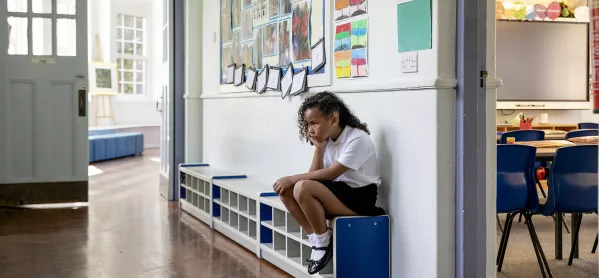Education leaders have said it is ”disappointing” that a key speech made by the prime minister today did not highlight education as a government priority for 2023.
In his first major speech of the year, Rishi Sunak set out his vision for his premiership in 2023, with five pledges he promised to deliver this year, which included halving inflation and bringing down NHS waiting lists, but nothing on schools or education.
A union leader said that, despite “warm words” about the importance of education, the only “tangible” policy for schools was the “vague” idea to extend maths teaching up to the age of 18 for every student, which Mr Sunak said he will deliver if he wins another term in a general election.
Geoff Barton, general secretary of the Association of School and College Leaders, said “serious” investment was needed for schools and colleges.
He said: “We’ve heard from the prime minister more warm words about the importance of education as the best economic, social and moral policy for the country, and this is a sentiment with which we obviously agree.
“But the only tangible measure he has announced is a vague idea of extending maths teaching up to the age of 18 for every student without the slightest evidence of what this would achieve or an acknowledgement that we already have a severe shortage of maths teachers and the plan is therefore currently unachievable.
“The education system doesn’t need more policy gimmicks or random targets, but serious and sustained investment in schools and colleges after a decade of chronic underfunding, and a strategy to address teacher shortages that are at crisis point.”
Schools were awarded some extra money at last year’s autumn fiscal event, but Mr Barton said this came “in the context of budgets that have taken an absolute hammering for many years”.
Others also criticised Mr Sunak’s decision not to include education policy as a priority for the coming year.
David Laws, executive chairman of The Education Policy Institute, said it was ”very disappointing” that education did not feature as one of the prime minister’s five key policy priorities for the year ahead.
“Better education is central to improving both life chances and the UK’s productivity rates. There is a huge job to do to ensure that students recover their learning after the adverse impacts of the Covid crisis - particularly for poorer pupils.
“However, the only new education policy in this speech was the aspiration about extending maths to all pupils in the 16-18 phase. While there is a good case for more maths education in sixth forms and colleges, it will take many years to recruit the necessary teachers.
“The government will also need to think through what this means for the 30 per cent of pupils who currently fail to achieve the accepted “pass” level in GCSE maths. There was no detail on this key issue in the prime minister’s speech.
“It is likely to take five to 10 years to make a reality of the maths commitment, but there are urgent education issues that need addressing now.”
Mr Sunak announced his plan to ensure all pupils in England study some form of maths until the age of 18 as part of the speech, but despite the pledge being welcomed by some, others have said there are more pressing education issues to deal with.
Commenting after the speech, Lee Elliot Major, professor of social mobility at the University of Exeter, said the “national priority” should be “addressing the scandalous failure of so many pupils leaving school lacking basic maths”.
Mr Sunak said that his promises reflected “the people’s priorities”.
He said: “They are your government’s priorities. And we will either have achieved them or not.”
“No tricks…No ambiguity…We’re either delivering for you or we’re not. We will rebuild trust in politics through action.”




